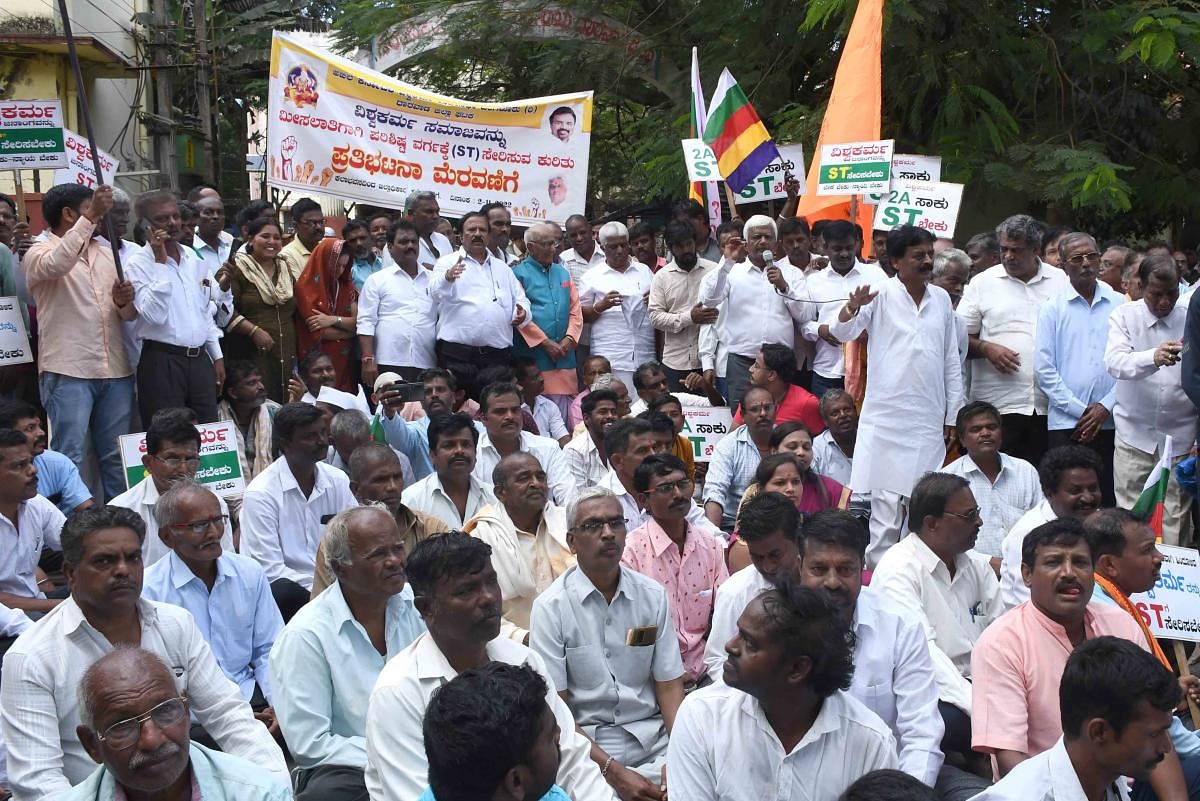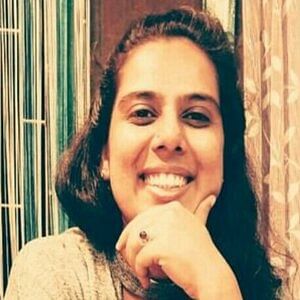
The BJP government in the state, which recently announced internal reservation for Scheduled Castes and hiked the reservation for Lingayats and Vokkaligas under other backward classes (OBC) with an eye on the Assembly polls, has stirred the hornet’s nest as several marginalised communities continue to wait for recognition as Scheduled Tribes (STs).
There are demands pending before the government from at least eight communities including Kurubas (Halumatha), Kadugolla, Halakki Vokkalu, Kunabi, Gangamatha, Yelava, Kodavas and Gowligas.
Sources in the tribal welfare department told DH that ethnographic studies of these communities were submitted to the government.
The State Tribal Research Institute is in the process of conducting an ethnographic study on Gondaligas.
Watch | Karnataka: Lambani Community protests over internal reservation of SC Community in Kalaburagi
A proposal to consider Hoogaras as ST awaits consideration by the government. Recently, Parliament passed a Bill to include Betta Kuruba under STs.
The Kuruba reservation issue has turned into a political hot potato for the BJP with its own leader and former minister K S Eshwarappa earlier leading protests for it.
Chief Minister Basavaraj Bommai recently assured that the government would impress upon the Centre to take a decision in this regard at the earliest.
Speaking to DH, Eshwarappa stressed the need for the ST Tag to the community.
“Beyond the visible faces of the community such as Siddaramaiah and I, a large part of the community lives in rural areas and are deprived of basic needs. To access education and secure livelihoods, they need government support,” he emphasised.
Rudranna Gulaguli, president of the Halumatha Mahasabha, said their demand was for inclusion of all Kurubas in the state under ST category.
At present, those in Kodagu alone are classified as ST. “Traditionally a nomadic, shepherd community, we are the original tribes in the country, meeting all parameters of the Lokur Committee which sets criteria for defining STs,” he said.
Another significant demand is from Kadu Gollas. The BJP government made attempts to appease the community by setting up the Kadu Golla Welfare Board, ahead of the Sira bypolls in 2020 (the region has a significant Kadu Golla population).
Its candidate Rajesh Gowda won the election, defeating senior Congress leader and six-time MLA T B Jayachandra.
“Three years later, the Board is yet to be registered. It appointed Changavara Maranna as the president of the Board only recently,” lamented Meese Mahalingappa, a BJP leader and general secretary of the Kadugolla Sangha.
In the 2018 Assembly polls, the Kadugollas, who are concentrated in Tumakuru, Chitradurga and Ramanagar districts, backed BJP. However, the community was disappointed with the government’s apathy, he said. The estimated population of the community is 6.5 lakh, he added.
Sources in the tribal welfare Department blamed the union tribal ministry for sending back files on frivolous grounds.
“Despite us sending all information, files are sent back for additional supporting documents,” one official said.
Further, the government goes by outdated parameters mentioned in the Lokur Committee report.
“For example, if there is a traditional hunting community, they can no longer be defined by this profession as hunting is now prohibited,” the official explained.
Many of these communities go by different names in different regions. There is no official data on their population too, making it a challenge, he added.
Former Backward Classes Commission chairperson C S Dwarkanath said beyond the ethnographic studies which cater to technical requirements, the government needed to take suggestions from former judges or chairpersons of the backward classes commission to make these proposals more comprehensive.
“The government is doing a half-hearted attempt as the goal is only to show that the proposals have been sent. The proposal of the Kadu Golla community has come back twice,” he said, making a case for stronger proposals to the Centre.
